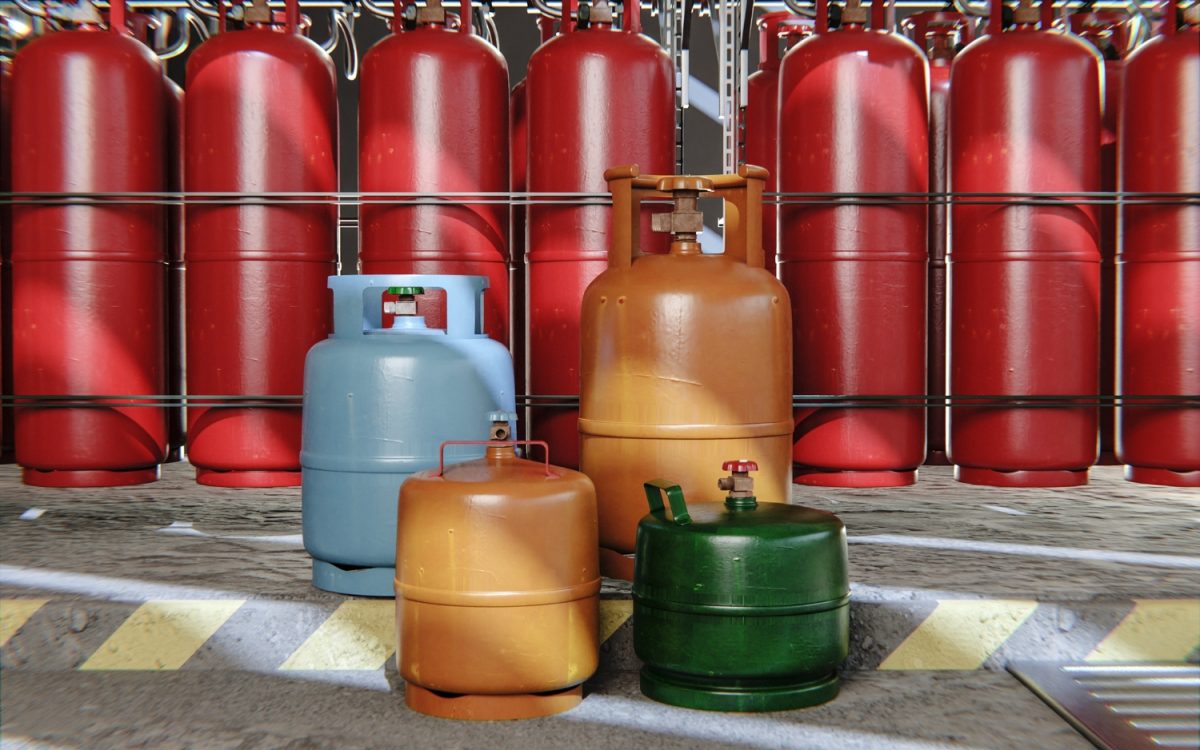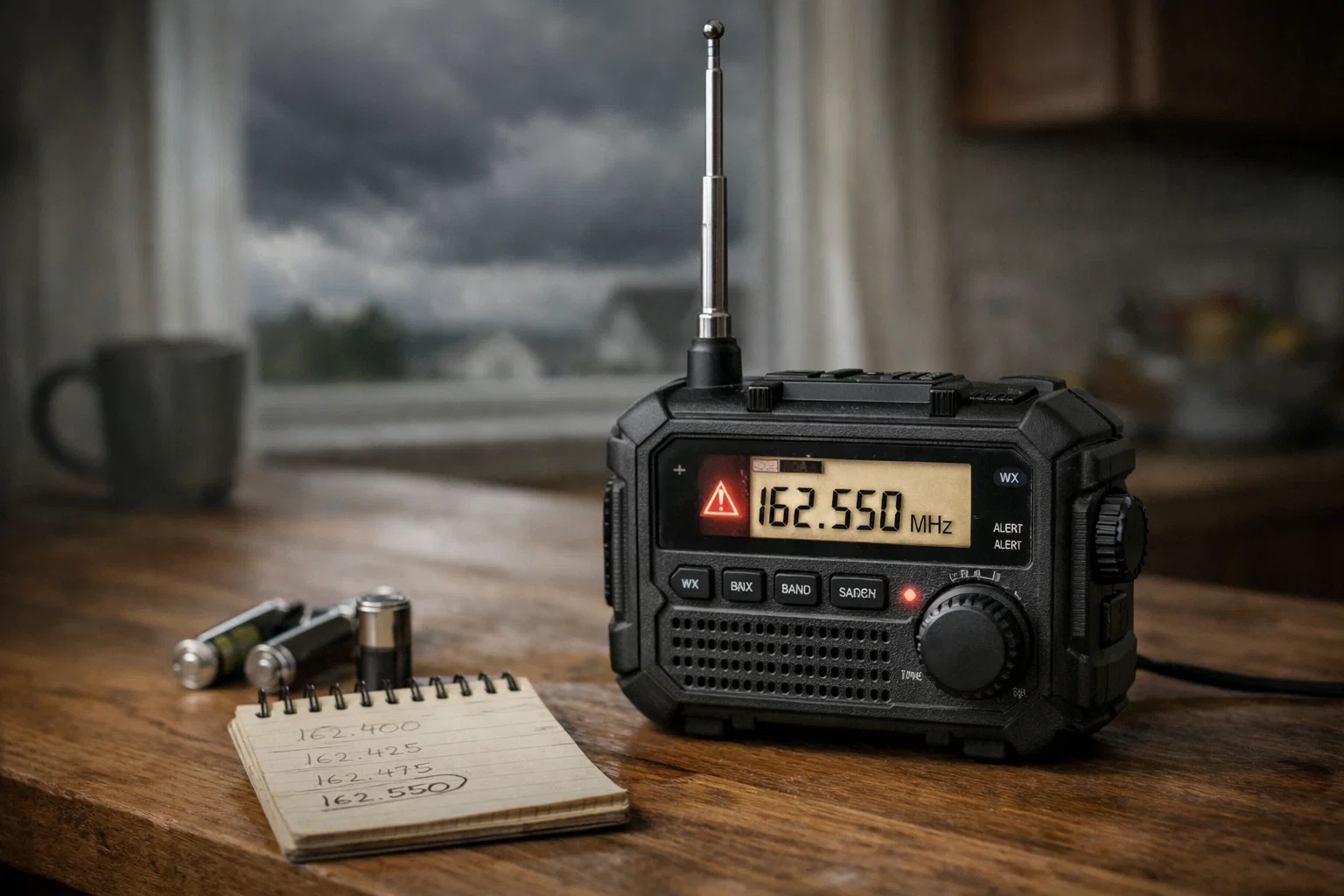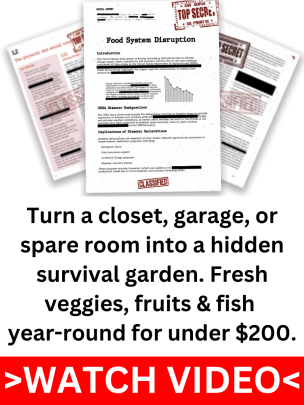If you’ve been paying attention lately, you’ve probably noticed that fuel shortages are popping up more often than anyone would like. Whether it’s pipeline hacks, extreme weather, or folks losing their heads and panic buying, those long lines at gas stations aren’t just a fluke. And when that occurs, the last thing you want is to find yourself short on emergency fuel reserves. Imagine being stranded without a way to heat the house, no fuel for the automobile, and no electricity for the generator. Having a substantial supply of survival fuel is not only prudent, but also essential for individuals like us who enjoy being prepared for any eventuality. Not only is it important to travel from point A to point B, but it’s also important to maintain control, strength, and warmth when things go wrong
Fuel keeps the vital things running: heaters, stoves, generators, cars, and more. But keeping fuel on hand alone is insufficient. You need to store it right and know what kinds work best for long-term situations. Let’s walk through the most important types of emergency fuel you should have in your prepper fuel storage and how to stash them safely so you’re not left scrambling when gas stations are out.
Fuel shortages do not usually imply that we are completely out of fuel; instead, it is more likely a distribution issue. Remember the 2021 Colonial Pipeline cyberattack? The supply of gasoline, diesel, and jet fuel came to a halt along the East Coast. People panicked, gas stations ran dry, and even after the pipeline was repaired, it took weeks for things to calm down. That whole mess was a wake-up call for anyone who thought fuel shortages were just an occasional headache. It’s proof that fuel preparedness should be a top priority.
Natural disasters also love to throw wrenches in fuel supply chains. Take a look at the wildfires in California in 2020. Fuel lines were destroyed, and many were unable to obtain enough petrol to flee. Having an emergency gasoline stockpile will save you from being in a hurry and rushing to acquire fuel before it’s too late. It maintains the functionality of your automobile or house when the public systems fail.
Stay ahead of the crowd with these tips on being prepared when others aren’t.
When fuel shortages occur, other vehicles also break down. There is a true ripple effect. Supply networks grind to a halt, supermarket deliveries stall, and even emergency services get delayed. However, you’re actually in control if you have fuel reserves set aside.
When fuel shortages hit, it’s not just your car that stops. The ripple effect is real. Supply chains grind to a halt, grocery deliveries slow, and even emergency services get delayed. But if you’ve got fuel reserves in place, you’re in the driver’s seat, literally.
Gasoline
When it comes to fuel for preppers, gasoline is the king. It powers cars, motorcycles, and small generators. So, when you need to get moving, keep your vehicle running, or power up small appliances, gasoline is probably your go-to emergency fuel. But there’s a catch, gasoline doesn’t last forever. After about three to six months, it starts to break down if it’s not treated. Not exactly ideal if you’re planning for long-term survival.
That’s where fuel stabilizers come into play. Add something like STA-BIL to your gasoline, and you can stretch its life to about 12 months. But even then, you’ll need to rotate your emergency gasoline supply regularly. Here’s a handy tip: mark your gas containers with the date you filled them, and use the oldest stuff first. Rotating every six months keeps things fresh, so you know it’s good when you need it.
Safety is no joke when you’re storing gasoline. It’s highly flammable, so always keep it in red, OSHA-approved containers. And please, don’t store it near anything that heats up or inside your house. A cool, well-ventilated spot is key. Proper ventilation prevents dangerous fumes from building up, and that keeps everyone safer.
Diesel
If you need to run any heavy-duty generators or have larger cars, diesel fuel is an excellent alternative. Diesel is a better option for trucks, recreational vehicles, and commercial generators in the event of a power outage since it is more fuel-efficient than gasoline and provides more power per gallon. Additionally, diesel engines have a longer lifespan than gas engines, meaning greater dependability when you need it most.
One of the big perks of diesel? Its longer shelf life. Treated with stabilizers, diesel can last 12 to 24 months. That’s twice as long as gasoline, meaning less worry about rotating it as often. Diesel also doesn’t evaporate or degrade as quickly, so it’s easier to keep on hand for a longer period of time.
And here’s where diesel really shines, it’s your cold-weather friend. Diesel engines are less likely to stall in freezing temperatures, especially if you add anti-gel treatments to the fuel. If you live in a place where winters get rough, diesel fuel will be your best bet for keeping generators or vehicles running even when it’s cold outside.
When storing diesel fuel, make sure to use yellow containers specifically for diesel. Store it in a cool, ventilated area, away from heat, just like gasoline. And don’t forget to rotate your stock every year to make sure it stays fresh. Checking for leaks or damage to the containers is always a good idea, you don’t want any nasty surprises.
Propane
If you’re looking for a fuel that practically lasts forever, propane is your answer. Unlike gasoline or diesel, propane doesn’t degrade over time. That makes it the ultimate long-term emergency fuel for preppers. Whether you’re powering generators, cooking, or heating your home, propane has you covered. It’s ideal for short-term outages or long-term off-grid living, it’s reliable, safe, and it doesn’t require much maintenance.
Propane fuel is super versatile. It can be used to operate your generator continuously, heat your home with propane heaters, or cook on a gas stove. Furthermore, unlike gasoline or diesel, it doesn’t need to be rotated because it has no shelf life. The benefit of propane is that you can set it up and forget about it until you need it.
However, you shouldn’t disregard safety just because something lasts a lifetime. Some basic safety precautions are required when storing propane. Propane tanks should always be kept outside or in an area with good ventilation. Never, ever keep them inside your home or in confined areas like basements. And be sure to check your tanks for rust or leaks from time to time. If your tanks are in good condition, propane is one of the safest, most stable emergency fuels you can have.
Charcoal
Charcoal is an essential component of any prepper’s emergency fuel stockpile for outdoor cooking. It’s affordable, dependable, and ideal for bringing water to a boil or grilling food when your other systems are unavailable. Charcoal fuel is readily available, simple to store, and, if kept dry, virtually endless. Charcoal will come in handy when cooking indoors isn’t an option due to an emergency.
All you have to do to store charcoal is keep it sealed in airtight containers to keep moisture out. When it gets wet, it becomes virtually unusable. On the other hand, charcoal fuel never spoils as long as it remains dry. But keep in mind that charcoal is only meant to be used outside. When burned indoors, carbon monoxide is released, which is lethal. So, leave it outside no matter how chilly it gets.
Alcohol-Based Fuels
Alcohol-derived fuels, like ethanol, isopropyl alcohol, or denatured alcohol, are very portable and helpful in an emergency. You may cook with these emergency fuels, boil water, and even start fires with them. They work especially well with little, portable stoves. Alcohol fuels burn cleanly and don’t produce a lot of smoke, so they’re ideal for locations with inadequate ventilation. Because they are lightweight, they are also perfect for emergency kits or bug-out bags.
You may store alcohol-based fuels for extended periods of time without worrying as much about rotating them because they decompose more slowly than gasoline. One of their key benefits is this. They are also safer to store because they are less flammable than gasoline or diesel and so less prone to start fires or explode. Alcohol fuel ensures that you will always have a portable, trustworthy option for emergency cooking or heating. Keep some on hand.
Here’s another bonus: alcohol fuels can also be used as disinfectants or sterilizers. When it comes to survival scenarios where multifunctional equipment are necessary, that is a win-win situation.
Biomass Briquettes
A renewable and environmentally friendly alternative for your emergency fuel supply are biomass briquettes. Compressed organic materials such as sawdust, agricultural waste, or even paper are used to make them. For self-sufficient preppers, these briquettes are an excellent substitute for fossil fuels because they burn clean and effectively.
The fact that biomass briquettes burn cleanly and produce little smoke is their strongest feature. Air quality is important for off-grid living, and biomass fuel keeps things cleaner than wood, which can clog the air with soot. They function effectively for cooking, heating, and even in some kinds of solid-fuel generators.
Here’s a cool perk, you can make biomass briquettes yourself if you’ve got the right tools. Turn household waste into a fuel supply, and you’ll have a renewable fuel source that doesn’t rely on outside help. That’s serious self-sufficiency.
Storing biomass briquettes is easy, just keep them dry and in a ventilated area. If they get wet, they lose their effectiveness. Proper storage ensures they last a long time, making them a solid renewable fuel option.
Biomass briquettes are a great, renewable fuel choice for long-term use, especially for off-grid living, even though they might not have the same energy density as propane or gasoline. They are cheap, sustainable, and easy to make, making them a vital tool for any serious survivalist attempting to diversify their fuel sources.
Safe Storage Practices
Safe storage is just as important as picking the right fuel. Fuels like gasoline and diesel are highly flammable and need to be stored in approved containers. The color coding helps, red for gasoline, yellow for diesel, and blue for kerosene. That way, there’s no confusion or mix-ups.
Always store your fuel in cool, ventilated areas away from where you live. It is strongly discouraged to store large quantities of emergency fuel indoors. Tightly seal the containers, periodically check for leaks, and store them away from anything that could catch fire. For gasoline in particular, ventilation is crucial to preventing the buildup of hazardous vapors.
Gasoline and diesel can have their shelf lives extended by adding fuel stabilizers; nevertheless, even with that, you should routinely rotate your stock to ensure that your fuel supply is available when you need it. Even though propane can be kept for years, it’s a good idea to frequently inspect tanks for damage or rust.





















